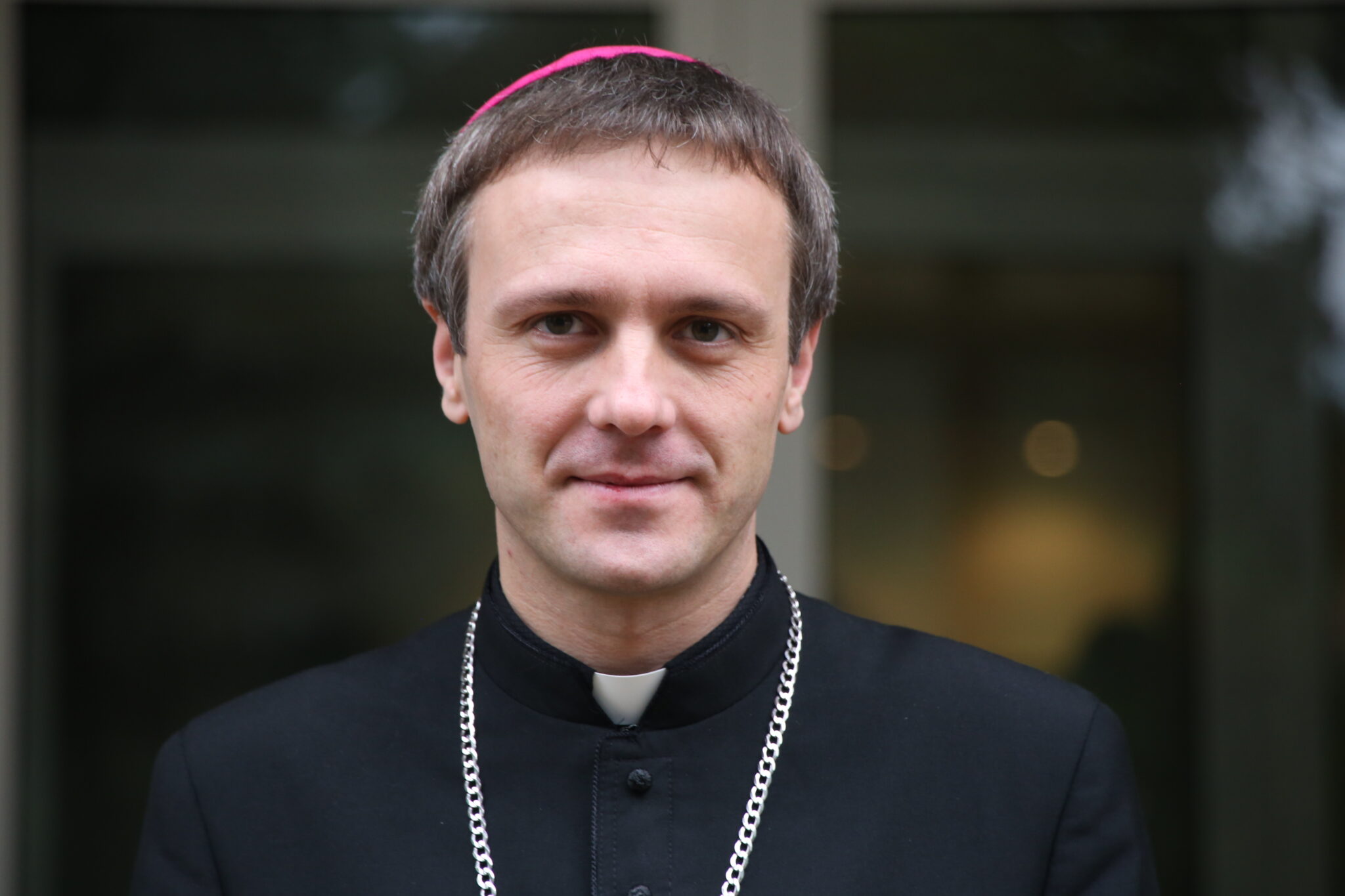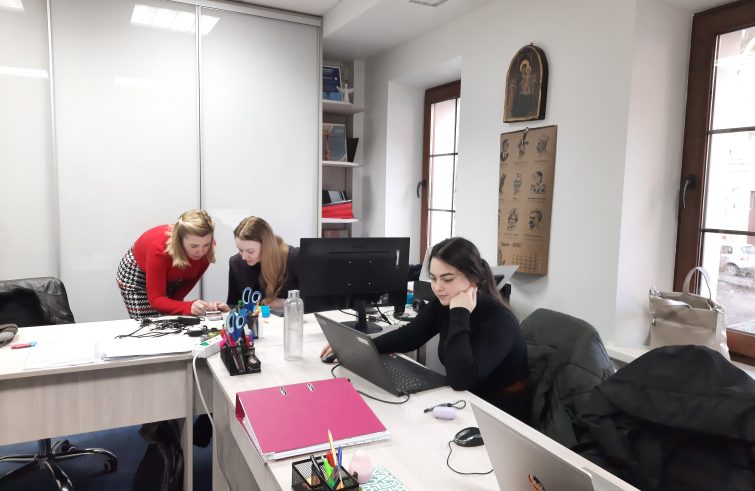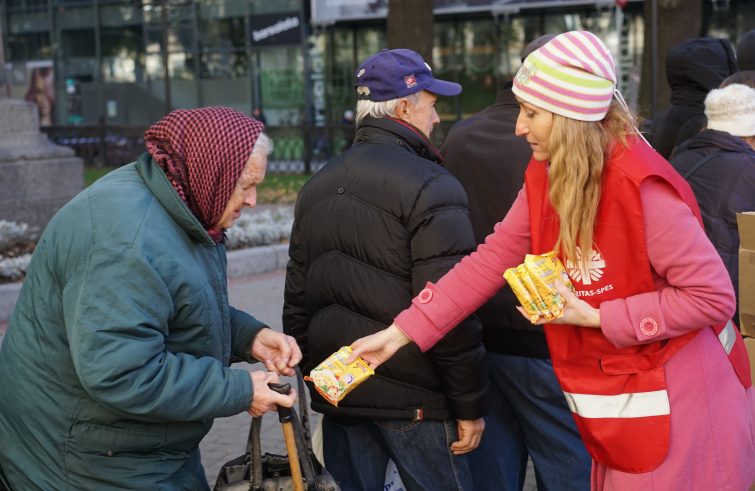
“I am presently at a main street in Kyiv, close to Majdan Square. Security and police officers patrol the streets due to the arrival of German Chancellor Olaf Scholz this morning. We feel that we are not alone, and for that we are grateful to God.” Msgr. Oleksandr Yazlovetskyi, Auxiliary Bishop of Kyiv, President of Caritas-Spes Ukraine, was walking down the street when we managed to contact him by phone. During the Angelus prayer on Sunday 1 December, the Pope renewed his plea for peace also for “tormented Ukraine”. This time he reminded the international community in particular of the difficulties the country is facing as the winter season begins. “Winter is around the corner – the Pope said – and it risks exacerbating the conditions of millions of displaced persons. The coming months will be extremely difficult for them.” “The coincidence of war and the cold temperatures is tragic.”

“We Catholics are grateful to the Pope for all the times he has mentioned our country and asked for our prayers,” said the President of Caritas-Spes. “Already this summer, residents were worried about the coming winter, because Russia is constantly targeting power plants,” he added, referring to the cold weather emergency. “They said on TV that we should be prepared. But how can you prepare a city as big as Kyiv, or a city as big as Ternopil, or a city as big as Lviv? People live in blocks of flats. How do they expect them to manage on their own? TV news reports and constant shortages of electricity, water and heating have driven up the price of utility bills. For example, the cost of power banks to charge smartphones and PCs during prolonged power cuts has almost doubled. Most large shops or offices in the city have bought their own generators. But how will ordinary people manage? In Kyiv, for example, electricity comes and goes in hiccups, every other hour. The bitter winter cold hasn’t arrived yet, and we can still manage without electricity.”
Caritas has its head office in Kyiv, but branches are scattered throughout the country, including on the war fronts. “At Caritas we are trying to provide generators at least to our main offices and reception centres, to make sure they have at least enough electricity to make tea or cook hot meals. But even generators are expensive,” says the bishop. Fortunately, the relief supplies continue to arrive. They have not diminished. And that, at least, is good news. “Caritas doesn’t abandon us, it always gives everything to everyone. I refer to Caritas Italy and Caritas Europe, which are helping us implement the various projects launched immediately after the crisis caused by Russia’s large-scale aggression, as well as launching new ones. But other humanitarian organisations are struggling. They complain that aid is dwindling and they are beginning to turn to our Caritas centres or to local bishops to obtain the funds necessary to continue the projects already underway.”

According to UNHCR estimates, more than 13 million people have sought refuge in neighbouring countries since the war broke out in Ukraine, with more than 7 million internally displaced.
Millions of internally displaced people in Ukraine are now facing the coming winter months without a safe place to live.
Many are living in temporary shelters. Others are struggling to pay rent each month in dilapidated housing. Having left all their belongings behind, families need help during the coldest months of the year. And as the war rages on, their situation is becoming increasingly dire. Many families have been left destitute by the destruction of their homes, lack of access to basic necessities such as food and drinking water, and the disruption of gas and fuel supplies. Now, as winter sets in, humanitarian efforts are vital to ensure warm, safe and dignified living conditions for those affected. “As believers, we trust that everything is in God’s hands. It will be the same this year, through the winter. We survived last year because the winter was not as harsh as we feared. We will survive this time too.”

Our eyes constantly turn to the sky, while our hopes lie “in the missile defence systems that protect our cities and power stations, and in our prayers”, says the President of Caritas Spes. “I hesitate to speak, lest I repeat the same things over and over again”, said the bishop.
“For us here in Ukraine, the name of hope is ‘peace’. Peace is something we used to take for granted, but today it has become a gift we implore.”
Hope is also the central message chosen by Pope Francis for the upcoming Jubilee Year, which will also be inaugurated here in Ukraine. But it is in Ukraine that the Ukrainian people will live the Jubilee Year. Given the current circumstances, it’s hard to leave the country. “Women cannot leave because they’re poor. And the men cannot leave either because of the war. It would have been nice to be in Rome for the Jubilee, in communion with the whole Church, to be able to visit the basilicas. But it is not going to happen.” If hope is peace, what kind of peace do you expect? “Various proposals have been made to put an end to this war. Hopefully, the world powers will agree on a just peace, not a peace that solves nothing. Not a peace agreed just to stop the war. Not a peace that leaves us alone to deal with all the poverty this war has created. And certainly not one that lacks the courage to condemn the guilty. Such a peace would be an unjust peace.”











